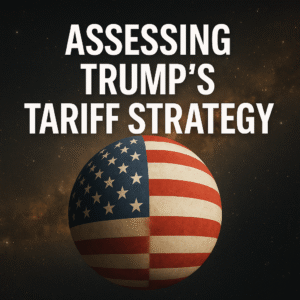Geopolitical Briefing: Syria
19 May 2025
- U.S. President Trump lifts all sanctions on Syria following meetings with Saudi and Turkish leaders.
- Syrian President Ahmed al-Sharaa expresses openness to joining the Abraham Accords, signaling potential normalization with Israel.
- Syria’s new government considers repudiating Assad-era debts, citing their use in warfare against the current regime.
- Regional powers, including Saudi Arabia and Turkey, deepen economic and diplomatic ties with Syria’s transitional government.
- Concerns arise over potential U.S. conditions tied to sanctions relief, possibly impacting Syria’s sovereignty and regional alignments.(The Jerusalem Post, Reuters)
In a significant policy shift, U.S. President Donald Trump announced the lifting of all sanctions on Syria during his Middle East tour, following consultations with Saudi Crown Prince Mohammed bin Salman and Turkish President Recep Tayyip Erdoğan. This move aims to facilitate Syria’s reintegration into the global economy and support reconstruction efforts after years of conflict. The decision underscores the growing influence of regional powers in shaping Middle Eastern geopolitics and reflects a departure from previous U.S. strategies that heavily relied on sanctions to influence state behavior.
During a historic meeting in Riyadh, President Trump and Syrian President Ahmed al-Sharaa discussed the potential for Syria to join the Abraham Accords, signaling a possible normalization of relations with Israel. Al-Sharaa, a former militant leader who assumed power after the fall of Bashar al-Assad, indicated a willingness to consider this path, albeit acknowledging internal challenges. Such a move could realign Syria’s foreign relations but may face domestic opposition given the population’s longstanding support for the Palestinian cause and resistance to Israeli policies. (AP News, New York Post)
The new Syrian government is evaluating the legitimacy of debts incurred during Assad’s regime, particularly those used to finance military operations against factions now in power. Legal experts suggest that these “war debts” could be contested under international law, potentially relieving Syria of substantial financial burdens. Successfully repudiating these debts would enhance Syria’s economic sovereignty and reduce dependence on external creditors, aligning with efforts to establish a more autonomous national policy framework. (Reuters)
Regional actors, notably Saudi Arabia and Turkey, are strengthening their economic and diplomatic engagement with Syria’s transitional government. These developments include significant investment pledges and collaborative initiatives aimed at stabilizing the region. Such partnerships not only bolster Syria’s reconstruction efforts but also signify a shift towards greater regional integration and cooperation among Muslim-majority countries, potentially diminishing the influence of non-regional powers in Middle Eastern affairs.
Despite the apparent benefits of sanctions relief, there is skepticism regarding the absence of explicit conditions tied to the U.S. decision. Analysts caution that implicit expectations, such as aligning with U.S. strategic interests or altering regional alliances, may emerge over time. Given the U.S.’s historical involvement in Middle Eastern conflicts and regime changes, there is concern that such conditions could compromise Syria’s sovereignty and its commitment to regional solidarity, particularly concerning the Palestinian issue and relations with neighboring countries.


